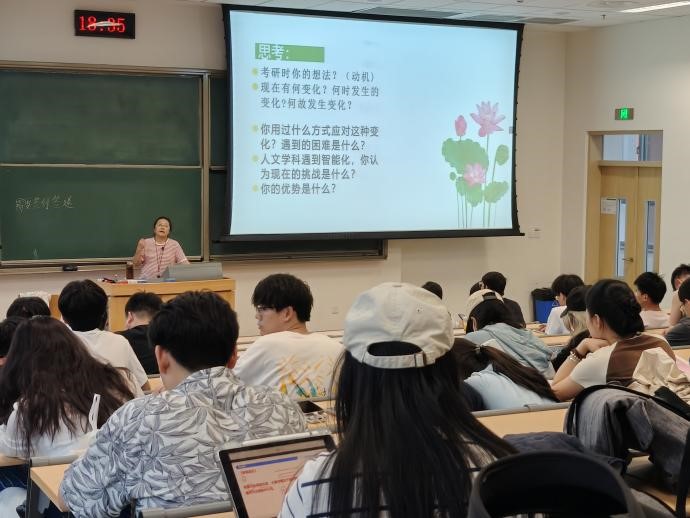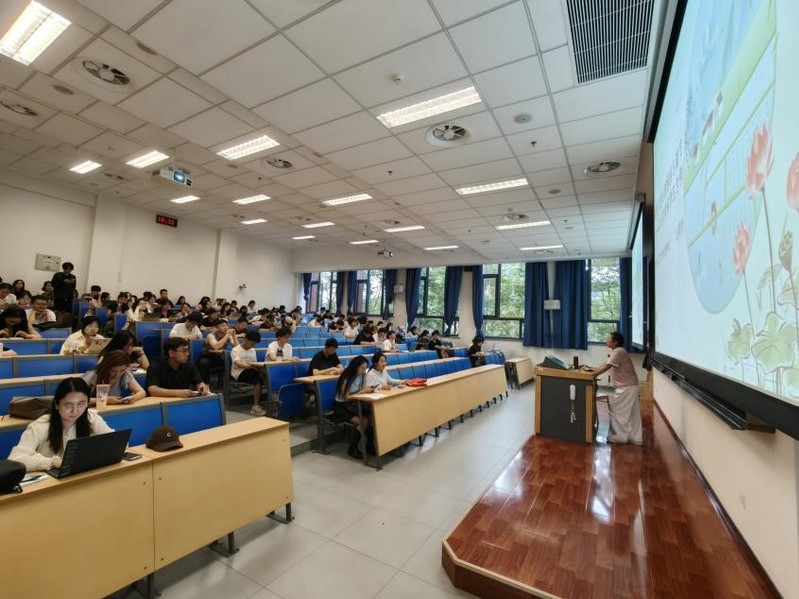College of Humanities and Law Hosts Lecture on Graduate Students’ Mental Health and Coping Strategies
As the graduation season arrives, many students face varying levels of stress and anxiety coming from job hunting and academic pressure. Senior graduate students grapple with immediate employment challenges, while first- and second-year students often face uncertainty regarding future career prospects and academic expectations. In the context of rapid technological advancement, how humanities students can adapt to societal changes, respond to the demands of the AI era, and manage both academic and career-related stress has become a growing concern for many.
To help students navigate these challenges and plan their careers more effectively, the College of Humanities and Law organized a special lecture titled “Graduate Students’ Psychological Challenges and Coping Strategies: A Humanities Perspective” on the evening of May 21, 2025, in Lecture Hall A202, North Campus.
Professor Wang Xiaoyan from the University’s Psychological Counseling Center was invited to deliver the lecture, offering expert insights and practical guidance.
Kicking off the lecture with thought-provoking questions, Professor Wang engaged the audience in discussions about societal changes, how students should respond, and the unique strengths and limitations of humanities. She emphasized that despite the fast pace of technological progress, the humanities continue to hold irreplaceable value, and the principle of “Nurturing with culture, governing with law” remains as relevant today as ever.
Professor Wang analyzed students’ common challenges, highlighting that opportunities often come with difficulties and stress. She encouraged students to make full use of the rich resources of their disciplines, cultivate independent and critical thinking, and maintain an open, curious mindset. She also stressed the importance of building inner psychological resilience, staying proactive and self-motivated, and engaging actively in research rather than waiting passively—thereby laying a strong foundation for future careers.


The lecture attracted nearly 200 students, primarily from the College of Humanities and Law, as well as attendees from the College of Materials Science and Engineering, Chemical Engineering, Chemistry, Mechanical and Electrical Engineering, Economics and Management, Marxism, Science and Mathematics, Information Science and Engineering, and the Department of Art and Design.
Through Professor Wang’s insightful and accessible explanations, students gained a deeper understanding of their own potential. Graduating students discovered practical strategies to ease their employment anxiety and approach job hunting with greater confidence, while junior graduate students felt more optimistic about balancing academic pressures and career planning. Many participants shared that they were inspired to combine the strengths of their academic disciplines with personal growth, embracing future challenges with renewed passion and determination in the age of intelligent technology.

